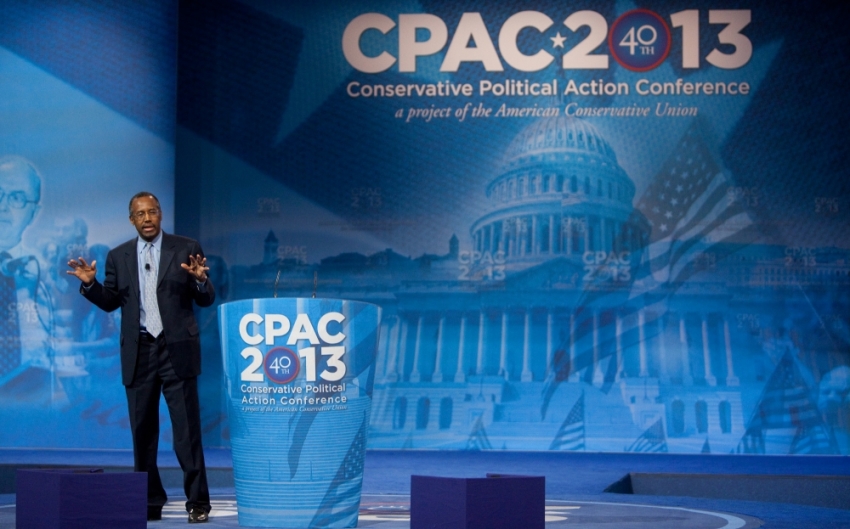Neurosurgeon Ben Carson Retires From Surgery; Becomes Columnist for Washington Times

Gifted Hands author and renowned neurosurgeon Dr. Benjamin Carson who shot to conservative stardom with his campaign against political correctness earlier this year has retired as head of pediatric neurosurgery at Johns Hopkins Hospital in Baltimore, Md., and joined The Washington Times as a weekly columnist.
Carson, who maintains duties as professor emeritus of neurosurgery at Johns Hopkins University, was announced as a new voice at The Times on Tuesday and started working on Wednesday.
"Dr. Carson is one of the freshest and most powerful voices in the conservative movement whose values were forged in the decades he spent helping everyday Americans as a pediatric neurosurgeon and public servant," said Larry Beasley, president and CEO of The Times in that paper on Tuesday. "We're excited to be adding his thought leadership to our opinion pages, a perfect addition to a team that also includes Emily Miller, Rand Paul, Wes Pruden, Suzanne Fields and many other cogent voices."
Carson became famous for rising from a hard-scrabble life in his youth to become one of the first surgeons to separate conjoined twins in the 1980s. After delivering a heavily watched speech against political correctness at the National Prayer Breakfast in February, however, Carson became a political star and conservatives began encouraging the idea of him being a 2016 presidential contender.
The excitement attracted a wave of media attention which saw him being branded as a "conservative media darling."
In March, however, Carson came under fire from liberal activists who accused him of equating homosexuality with bestiality after a Fox News interview during which he stated: "My thoughts are that marriage is between a man and a woman. It's a well-established, fundamental pillar of society and no group, be they gays, be they NAMBLA, be they people who believe in bestiality – it doesn't matter what they are – they don't get to change the definition."
In his debut column for The Washington Times on Wednesday, Carson addressed the issue again.
"Political correctness, which is vigorously enforced by much of the news media and many of our educational institutions, imposes a code of silence that prevents discussion of game-changing alterations of our fundamental social pillars," wrote Carson.
"I was amused and saddened recently by the way the PC police intentionally took something I said out of context and distorted it in order to deviate the conversation away from what I was talking about and try to turn it into a conversation about me and whether or not I was a homophobe," he explained.
"This is a classical example of how this group works. I was asked whether I favor same-sex marriage. I said that I did not think that any group had the right to change the definition of a fundamental pillar of society."
Carson also noted that he was excited about the opportunity to share his thoughts on important issues of the day.
"I revel in the opportunity to discuss many of the important issues of today even though many detractors will continue to try to put me in a box and say that I can only comment on things relevant to the field of neurosurgery," he said.
"They are fond of saying 'the good doctor is a terrific medical practitioner, but he can't possibly know anything about issues outside of medicine."



























